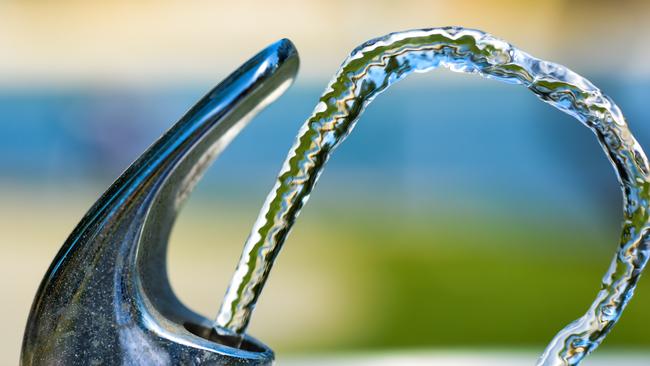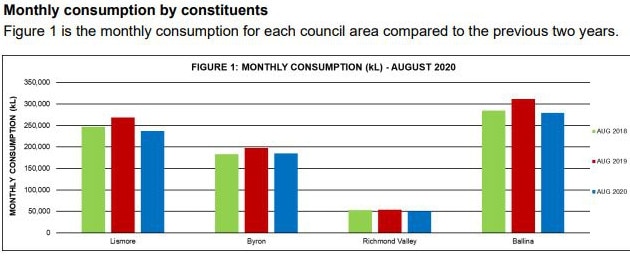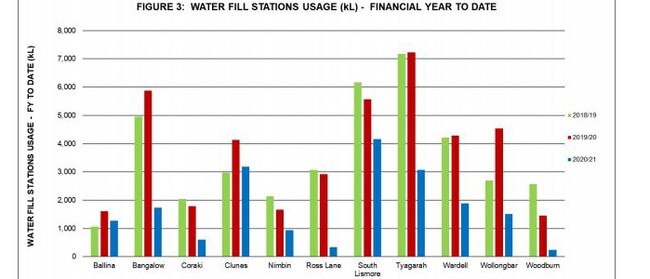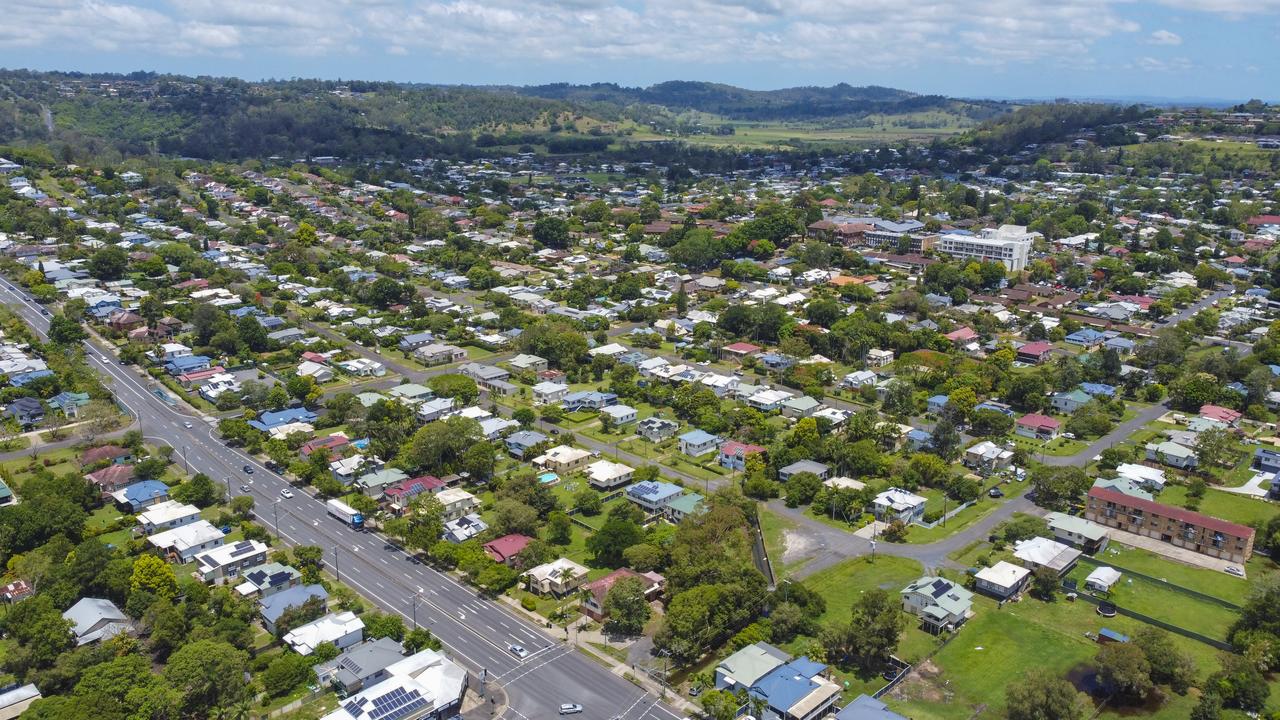We are using less water, except in one unusual place
NORTHERN Rivers’ water usage has decreased everywhere, except in one particular set of places, where it has exploded.

Lismore
Don't miss out on the headlines from Lismore. Followed categories will be added to My News.
NORTHERN Rivers' households are using less water, but demand from public water filling stations has exploded.
Rous' water production and usage report recorded Lismore City Council residents requiring 327,034L of water in August 2020, versus 268,672 in August 2019, a reduction of 11.78 per cent and the highest decrease rate in the area.
Byron Shire Council recorded a decrease in water consumption of 6.53 per cent in the same period, from 197,604L in August 2019 to 184,700L in August 2020.
Richmond Valley Council also decreased its water demand by a similar amount in that period, 6,53 per cent, going from 54,112L to just 50,613L.
Ballina Shire Council is still the biggest consumer of water in the area, with 279,054L consumed in August 2020 vs. 311,591L a year earlier, with a reduction of 10.44 per cent.

By September 2020, the Rous area had 44,653 connections to the water system, with 14,106 in Lismore, 10,228 in Byron Bay, 2,722 in Richmond Valley, 15,470 in Ballina and 2,127 as Rous County Council.
Public water filling stations remain popular among residents and visitors, with total usage for September 2020 at 8340kL, a massive increase from 5367kL in August 2020.
The South Lismore and Clunes water stations remain the most active with almost 2000kL each in this financial year, until August 2020.
South Lismore recorded more than 4000kL by September, while Clunes was just above 3000kL.
Not too far behind in consumption were the public water filling stations at Tyagarah, Wardell, Bangalow, Wollongbar, Ballina, Nimbin, Ross Lane, Coraki and Woodburn.

Rous County Council's report on its financial operations revealed that user charges in 2019/20 meant an increased demand for water in the region.
"User charges revenue increased by $1.3 million. Drought conditions increased water usage
during the 2019-20 financial year," the report stated.


